Renzo Rosso & Bruno Bertelli On How Diesel Got Its Fashion Mojo Back
As part of our fashion special, Diesel founder Renzo Rosso and Publicis' Bruno Bertelli tell us about transforming the brand through celebrating flaws.
Renowned for being direct, visionary and often outrageous, Diesel founder Renzo Rosso embodies all that the brand stands for. While far from being an outsider – he hangs with celebrity pals such as Kanye West – the un-pretentious Italian billionaire stands out among the fashion elite. “At Diesel, we’re ‘inside the border’, but with a touch of something different,’’ he says.
In the small Italian town of Molvena in 1978, Rosso created the Diesel brand with clothing manufacturer Adriano Goldschmied, who he then bought out in 1985. Rosso’s vision for ‘distressed’ denim – jeans that looked like they’d been worn-in – helped it stand out from rival denim companies such as Levi’s. Rosso was so focussed on perfecting his product, that he didn’t set about advertising his merchandise until 1991, when he decided it was time to amplify the brand.
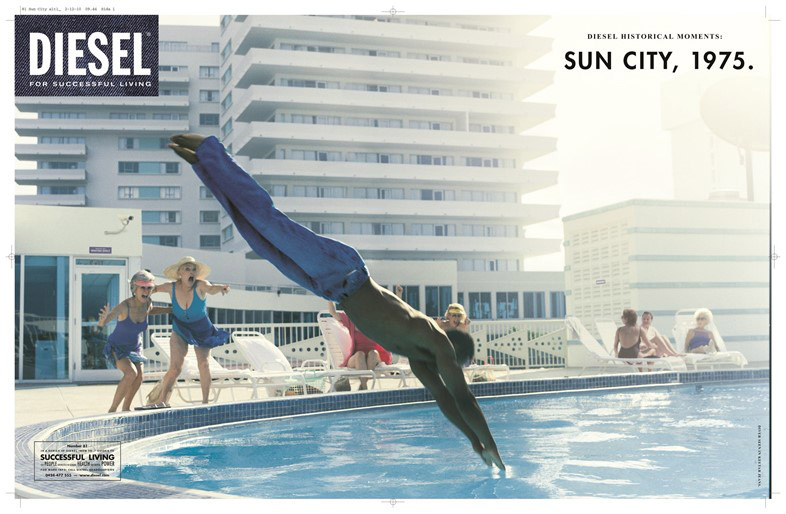 Diesel For Successful Living
Diesel For Successful Living
He began by tearing out hundreds of fashion ads from magazines. “I put them around my office, on the walls and floor,” he remembers. “It was very easy to understand who I wanted to be, because all the advertising was very similar.” He remembers how every ad (most of them in black and white) was product focussed. “I thought, ‘What’s the most important thing in advertising? It is to have a conversation with the consumer’,” he says. From that moment on, Diesel’s advertising would be all about the message.
Working with creative director Jocke Jonason at Swedish agency Paradiset, Rosso launched Diesel’s For Successful Living campaign. Designed to make people think – and separate those who ‘get it’, from those who never will – the brand’s long-running campaign saw ads that were deeply ironic and fun yet made quite profound statements about modern society. Among the 90s print ads, a black man dives into an ‘all whites’ pool, two sailors share a romantic kiss and text (ironically) urges parents to teach their children how to kill. Soon after the campaign launched, where a single creative execution ran in every market, the brand had a global tribe of supporters.
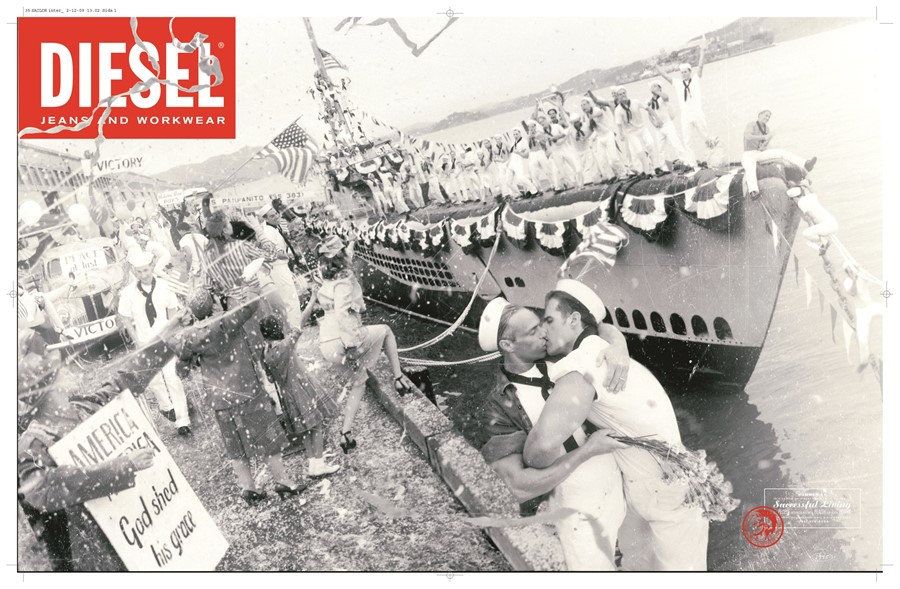 Diesel For Successful Living
Diesel For Successful Living
Diesel campaigns won several Grands Prix at Cannes Lions throughout the decade and it was named Advertiser of the Year at the festival in 1998 (during the prize-giving ceremony, Rosso and four of his team famously went on stage to collect the award wearing masks of his own face). “Diesel started this revolution,” says Rosso. “We started it to change the world of communications because our advertising was about interacting with our consumer and awaking in them a curiosity.”
A return to purpose
However, after Rosso left running the brand to focus on acquiring other companies (his holding company OTB, which stands for Only The Brave, also owns Viktor & Rolf, Maison Margiela, Marni and others), Diesel’s ads started to lose some of their magic. “The advertising became more obvious. No less beautiful, but more obvious,”says the founder. “The irony wasn’t there, nor the passion and love that used to be there before.” Rosso decided to return his focus to Diesel and, just as before, initially poured his efforts into the products (he says he’s started wearing them again for the first time in years). He then hired a new marketing director, Dario Gargiulo, who in August 2017 moved the account from Anomaly Amsterdam and brought Publicis Italy onboard.
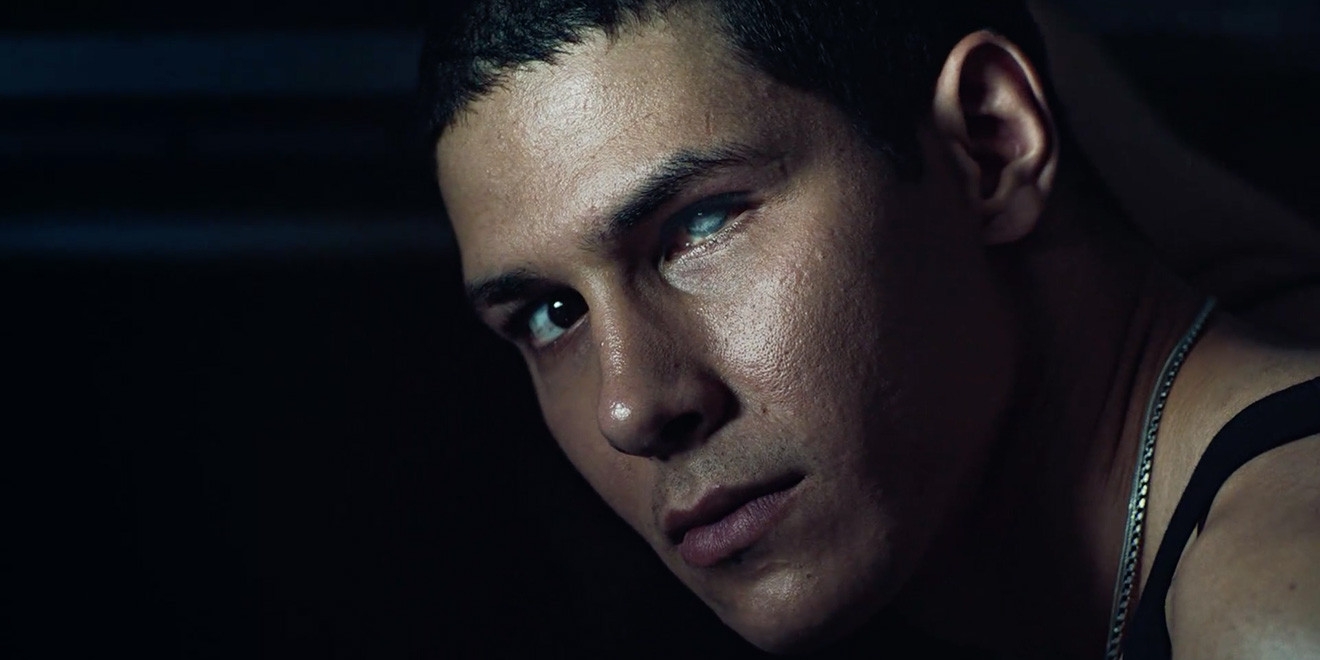
The new team sought to revive the anarchic energy and meaningful messaging that Diesel had once stood for. “The For Successful Living idea was still there,” says Bruno Bertelli, CEO Publicis Italy, “our objective was to bring it back and make it relevant again.” The team didn’t want to stray too far from the fashion world, but felt it had to offer a different perspective and redefine its purpose as a brand. “I think the greatness of Diesel is its ability to inspire people, to give them a new angle.”
“If you look at fashion, a lot of brands claim [to be about offering] freedom, but at the end of the day, they always direct you to the same territory, which is perfection,” Bertelli continues. “Also, on social media, we only show the perfect side of us. It’s always the best food, the best vacation or the best friends.” Rosso agrees, “Social networks are after beauty, beauty, beauty. I think if you [present] reality, you gain more sympathy and more respect.” So Diesel got real, and instead of joining the hordes of fashion brands promoting ideal bodies and lifestyles, it began celebrating imperfection.
Diesel gets its mojo back
The brand’s new positioning launched with a stirring film set to Edith Piaf’s Non, Je Ne Regrette Rien and featuring a group of models each with a distinct defect. A uni-browed beauty seduces her love interest, a girl with a squint pockets two snooker balls and a denim-clad hipster hisses at airport security with a mouth full of braces. While each star of the video has undeniable sass, they also have an endearing vulnerability about them, helping to create a sense of warmth that is rare in fashion films and enables the viewer to feel empathy with the models. “The casting brief was models with flaws who also have the ability to create closeness,” says Bertelli. “Sometimes, [in aspiring to] perfection – you create a distance.”
“The casting brief was models with flaws who also have the ability to create closeness. Sometimes [in aspiring to] perfection – you create a distance.”
Bertelli wanted Go with the Flaw to feel more like a music video – because, he says, “millennials hate advertising” – so François Rousselet, the talent behind promos for Madonna and The Rolling Stones, directed the spot. “It’s shot very classically with some references from the past,” says Bertelli. “It could be a video from the 80s.”
Go with the Flaw
Rousselet also directed the second iteration of the brand’s new positioning. “The first chapter was about establishing a manifesto for the brand,” says Bertelli. “So we decided to tell a story for the second one.” Keep the World Flawed shows a young man with huge ears having them surgically pinned back. He goes on to meet a beautiful woman in a laundrette and the pair fall madly in love. It is then revealed that she has also had plastic surgery, in her case to reshape a naturally prominent nose. The film ends with the pair walking hand in hand with their child, who has of course inherited both of their unwanted features. ‘Flaws Always Win’, reads the endline. “We wanted to bring in the humour and irony that has always been part of Diesel,” says Bertelli. The story is enriched with Easter eggs hidden throughout the film that direct viewers to more content that helps reinforce Diesel as a lifestyle brand. For example, the restaurant where the couple dine also has a website encouraging people to make spectacularly flawed culinary choices. Video recipes, created with Buzzfeed’s food platform Tasty, explain how to create ‘fuel for the flawed’ such as a Bloody Mary garnished with bacon-wrapped onion rings.
Keep the World Flawed
Diesel reinforced its new message at New York Fashion Week, when it opened a pop-up store appearing to sell counterfeit garments branded ‘Deisel’. The products were actually limited edition, authentic Diesel and shoppers that were happy to ‘Go with the Flaw’ got to buy the high-quality goods at market-stall prices.
The flair of a founder
Rosso’s brand may appear to champion imperfections in the world, but he’s not so forgiving when it comes to the creative process. “I am one of those people who is never satisfied, because I am looking for perfection,” he says. “I tell my team that creativity is the most important thing. I’m always saying, ‘go crazy, do more!’.”
It is unusual for the founder of a company to remain so involved with the brand’s communications, and his proximity to the work keeps the direction laser-focussed and true to Diesel. “It was beautiful to have a conversation with Renzo about his views on the brand,” says Bertelli. “When I started working on it, I was drawn towards more controversial, rebel territory, but instead, we decided to find an angle that was more inspiring. What’s surprising, is that while many clients spend hours discussing ideas, with Renzo the decision is immediate. He has an artistic instinct. He goes for the one he likes, and then he lets us produce it.”
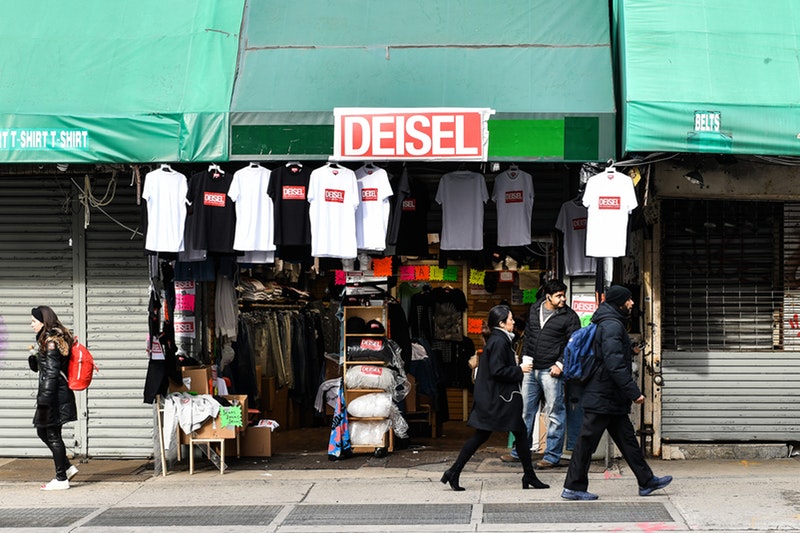
Deisel pop-up shop at NYFW this year
Rosso concurs that he is instinctual; “I immediately approved Go With the Flaw because it was very brave and true to the Diesel DNA.” He describes how many of his friends have congratulated him on the strength of the new work but insists he doesn’t want to take the credit. “We have a good team,” he says.
Rosso believes Diesel owes its success chiefly to creativity – an essential ingredient for any business to thrive. ‘Without creativity, you face more competiton and have to make your prices cheaper and cheaper. If you have it, you can build a brand, even a lifestyle. You can build values.”
WHAT INSPIRES... BRUNO BERTELLI & RENZO ROSSO
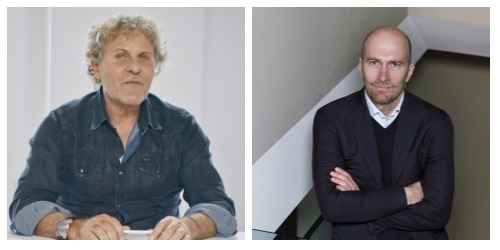
Renzo (left) and Bertelli (right)
What’s your favourite ever ad?
BB Axe Astronaut and Nike Fate
RR The next one.
What product could you not live without?
BB My phone.
RR Denim.
What do you think of social media?
BB It’s great, but I don’t believe in over-revealing. Keep some mystery!
RR It is key and I use it a lot. But let’s not forget to speak to each other.
How do you relieve stress during a shoot?
BB If possible, I play basketball.
What’s the last film you watched and was it any good?
BB Three Billboards Outside Ebbing, Missouri. Fantastic.
RR A Casa Tutti Bene, a new movie by my friend Gabriele Muccino.
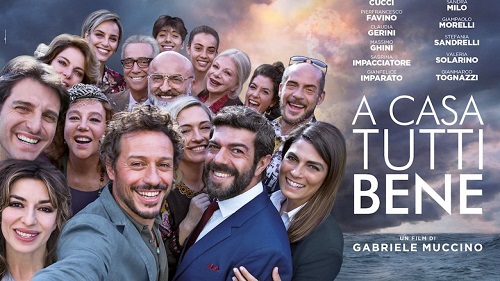
What’s your favourite piece of tech?
BB My phone.
RR My smartphone and matching Diesel On smartwatch.
What film do you think everyone should have seen?
BB The Party with Peter Sellers.
RR Point Break or The Last of the Mohicans.
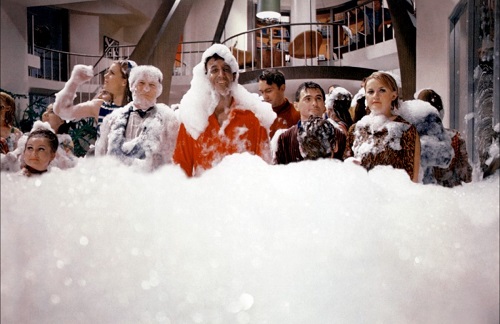
Still from The Party
What fictitious character do you most relate to?
BB J.K. Simmons’ character in Whiplash.
RR Russell Crowe’s character in Gladiator.
If you weren’t doing the job you do now, what would you like to be?
BB A filmmaker.
RR A soccer player.
Tell us one thing about yourself that most people won’t know…
BB I once played football with Oasis.
RR I wake up every morning at 5.55am (five is my lucky number).
Connections
powered by
- Agency Publicis Milan
- Client Diesel
- CEO Bruno Bertelli
Unlock this information and more with a Source membership.
)

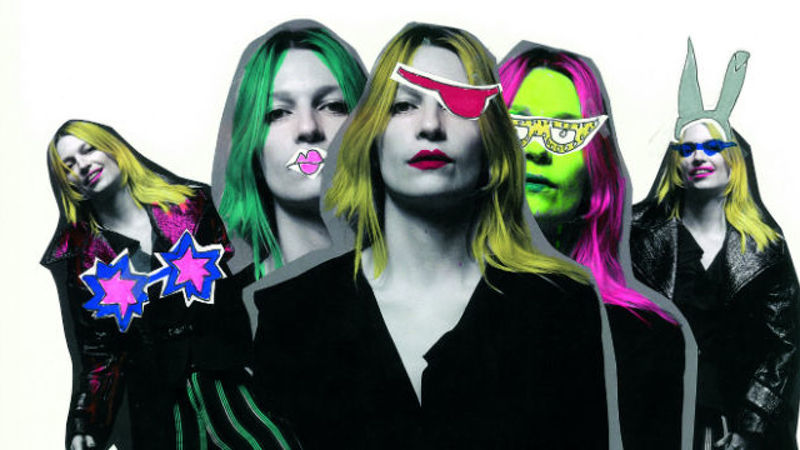


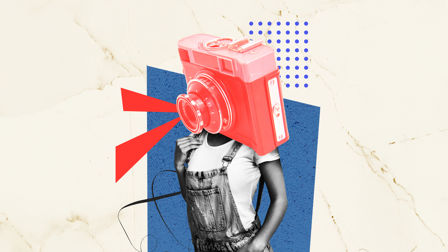

 Membership
Membership


